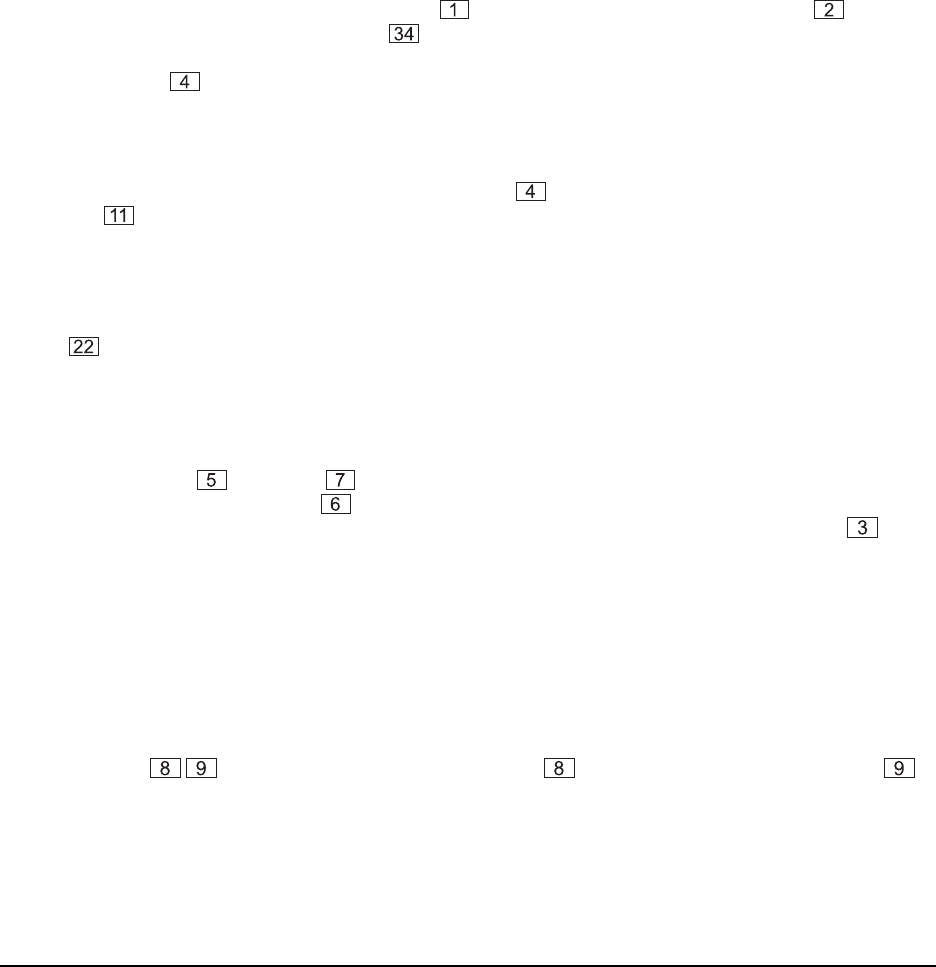
8
1.2.2 Warranty
Please take time to have the warranty card filled out completely by your specialized dealer and return it within
14 days after the date of purchase, so as to be entitled to benefit from our extended warranty.
1.2.3 Packing
Your BEHRINGER MX802A was carefully packed in the factory and the packaging was designed to protect the
unit from rough handling. Nevertheless, we recommend that you carefully examine the packaging and its
contents for any signs of physical damage, which may have occurred in transit.
+ If the unit is damaged, please do not return it to us, but notify your dealer and the shipping
company immediately, otherwise claims for damage or replacement may not be granted.
Shipping claims must be made by the consignee.
2. MONO INPUT CHANNEL
Each mono channel comes with an XLR Mic input and a balanced Line input on 1/4" jack . Phantom
powering is switchable from the back panel . The gain circuit has a wide range from +10 dB to +60 dB,
obviating the need for mic/line switching. The crucial operating input levels +4 dBu and -10 dBV are clearly and
accurately marked .
2.1 Input level setting
Mic Channel input level is determined by the GAIN control . In addition to Main Mix metering, a channel
PEAK LED illuminates when a channel is going into overload. These LEDs take their cue from post-EQ.
This level sampling is particularly useful when using extreme EQ settings.
There is no Solo or PFL function on the MX802A. To accurately set input follow the procedures given in section
5: SETTING UP. However, if the PEAK LED does not light the input gain cannot be too high. If a reasonable
input level is selected, auditioning a single signal should result in a reading of around 0 dB on the Main Mix
meters , provided that both channel and output level controls are set to unity gain (0 dB).
2.2 Equalizer
All mono input channels are fitted with three-band EQ, plus a switchable Lo Cut filter for eliminating unwanted
subsonics. The upper and lower shelving controls have their frequencies fixed at 12 kHz and 80 Hz
respectively. The Mid Range control has a peaking response, with Q fixed at 2 octaves, frequency at 2.5
kHz. All three bands have up to 15 dB of cut and boost, with a centre detent for off. The Lo Cut filter , slope
at 18 dB/oct., -3 dB at 75 Hz, is ideally suited for reducing floor rumble, breathing noises and popping, woolly
bottom end etc.
+ The combination of shelf boost at 80 Hz together with Lo Cut at 75 Hz results in a peaking
response, useful for adding warmth to vocals and instruments, and a firm bottom to kick drums
and basses, without losing control of low frequency speaker cones.
2.3 Aux Sends
Both Aux Sends are mono and post-EQ. Aux Send 1 is set pre-fader, while Aux Send 2 is
post-fader.
For almost all FX Send purposes, you will want Aux Sends to be post-fader, so that when a fader level is
adjusted, any reverb send from that channel follows the fader. Otherwise, when the fader is pulled down, the
reverb from that channel would still be audible. For cueing purposes, Aux Sends will usually be set pre-fader,
i.e. independent of the Channel Fader.
Aux 2 can be made pre-fader on mono channels Aux 2, see chapter 5.6 for details.
2. MONO INPUT CHANNEL


















